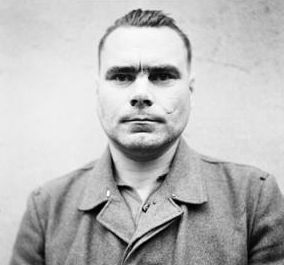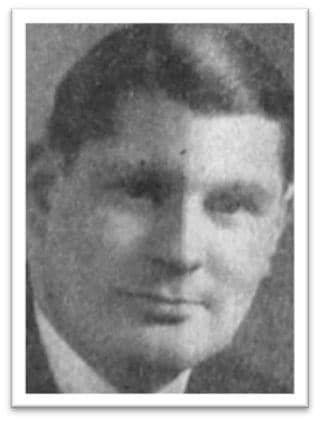Colonel Thomas Backhouse O.B.E. T.D was adopted as the prospective Conservative Candidate for the Rossendale Division in May 1946. A well-known barrister, who appeared regularly in his early career at the Rawtenstall and Bacup Courts, he had a distinguished military career. A member of the Officer Training Corps whilst at school he joined the 4/5th East Lancashire Regiment on leaving Cambridge and was for a time the Officer Commanding the Headquarters Company organising the recruiting campaign in the Spring of 1939.
Two years earlier he had been selected for Staff employment in the Judge Advocate General’s Department. Following the outbreak of war, he was posted to the General Headquarters of the British Expeditionary Force being one of the first of the 4/5thbattalion to go overseas in 1939.
Escaping from Dunkirk through St Nazaire, he was posted overseas in July 1944 serving on Field Marshall Montgomery’s staff in Normandy, Belgium and Germany. He was given the task of organising the investigation of war crimes for the whole of North-West Europe in January 1945 becoming the Chief Prosecutor in what was known as the first Bergen Belsen trials.
The trials took place in Luneburg, Germany two of the most notorious defendants were Josef Kramer the camp commandant known as the Beast of Belsen and Irma Grese SS guard at Ravensbrück and Auschwitz and warden of the women’s section at Bergen Belsen. On the fiftieth day of the trial which took place on Tuesday, the 13th of November 1945, Colonel Backhouse gave his closing speech. Part of which said: There were two reasons for interning these people. One was the deliberate destruction of the Jewish race with the object of strengthening the home front and preventing what happened in the last war. The destruction of Poland was another; again, an avowed war aim. The gathering into Germany of persons from every country that Germany overran was done with the deliberate intention of weakening that country in its effort to resist Germany.
He went on to say: At Belsen, you have not the gas chambers, but you have conditions created there which may well have been worse. You have people dying in very drawn-out agony, which was not thought of in Auschwitz. In my submission, it is immaterial whether that was deliberate because these people were no longer fit to work for the Reich and therefore they were to be left to starve, or whether it was the result of gross neglect by the persons who were placed in charge. If persons take part in such an enterprise, whether they join it early or late, if they were the head of it, as Kramer was, or if they were the tail of it, as were some of the Kapos who joined possibly to save their skins, they cannot evade their responsibility. I say if you are satisfied that they did take a part, however small, in it, then they are guilty of the crime.
This Court is doing justice, and if you have any reasonable doubt in the case of any of the accused, quite rightly you will acquit them. If, on the other hand, you are satisfied in respect of all or any of these persons that they knew what was happening, that they realised that these people were dying of neglect, and they took part in it, then, in my submission, there can be only one verdict on whichever charge it may be, and that is that they are guilty. This case started, by a singular coincidence, on the Jewish Day of Atonement. It is a very long time ago, and if the Court are satisfied with the guilt of any of these prisoners they have only one duty, and that is to declare them guilty.
Both Josef Kramer and Irma Grese were found guilty and hanged on the 13th of December 1945 by the British executioner Albert Pierrepoint.
Excerpt from Bacup at War- WA Lord

